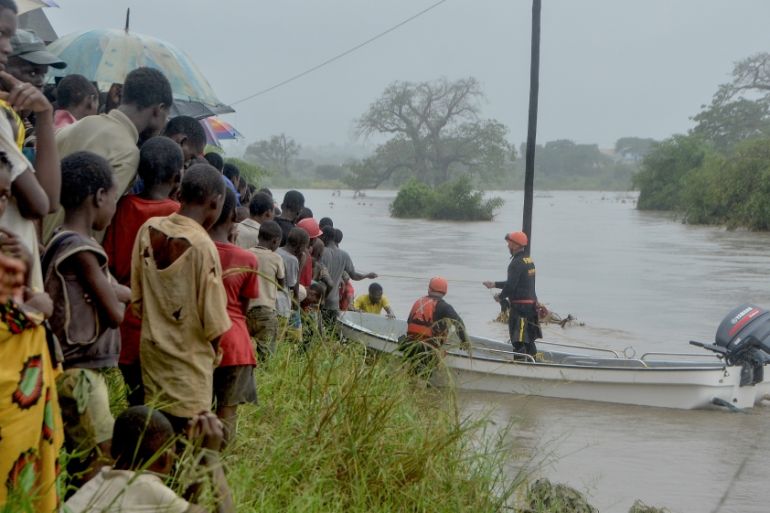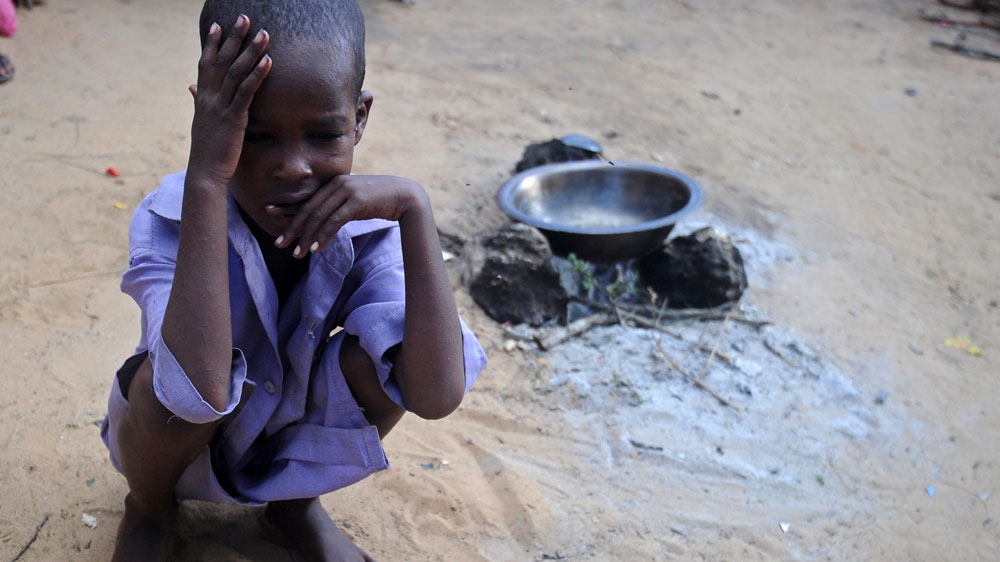World’s poor get less than 1 cent a day for climate change: Oxfam
World’s poorest communities have done the least to cause climate change, but end up paying for it, says charity.

The costs of battling climate change are increasing for the world’s poorest communities, as they struggle with more extreme weather patterns and insufficient aid, the United Kingdom-based aid group Oxfam said on Monday.
“People in Mozambique and the Horn of Africa are facing mounting human and financial costs from climate-related disasters they did least to create,” Oxfam said in a statement.
Keep reading
list of 4 itemsAre seed-sowing drones the answer to global deforestation?
Rainfall set to help crews battling wildfire near Canada’s Fort McMurray
The Alabama town living and dying in the shadow of chemical plants
A new report by Oxfam showed that the 48 least developed countries in the world are receiving between $2.4bn to $3.4bn a year to cope with disastrous climate events, equivalent to approximately $3 per person annually or less than one cent per person each day.
This is despite the fact that people in these countries contribute less to carbon emissions compared with the average United States citizen. The average footprint of the richest one percent of people globally could be 175 times that of the poorest, Oxfam said.
The report coincides with a major United Nations climate summit in which Secretary-General Antonio Guterres will push countries to increase their greenhouse gas reduction targets.
Oxfam also said that the richest 10 percent emit half of the global emissions while the poorest 50 percent emit about 10 percent of the world’s carbon output.
“People in the world’s poorest countries are more at risk of being forced from their homes by climate-related disasters, with research showing that they are five times more likely to be displaced by sudden-onset extreme weather disasters than people in high-income countries over the period 2008-2016,” the report said.
In particular, countries in the Horn of Africa are struggling, bearing the brunt of more extreme weather patterns. It is not only costing their governments millions of dollars but also displacing the region’s poorest and disrupting their livelihoods.
“Millions of Somalis, especially women and children, are facing the reality of starvation and their livelihoods decimated by this third failure of the seasonal rains in a row,” Halima Adan, deputy director with Oxfam partner organisation Save Somali Women and Children, said.
According to Oxfam, Somalia faced substantial rain in short bursts throughout May to July in 2019, causing extensive flood damage in many areas. At the same time, the country was suffering increasingly frequent droughts due to an increase in average temperatures.
“This resulted in the situation where, for the same country, the UN launched an $80m flood appeal on the very same day as launching a $710.5m drought response plan (20 May 2019),” Oxfam said.
In Mozambique, two major cyclones struck in March and April, destroying 80 percent of housing in affected areas that were still reeling from a 2016 drought.
“When the winds started, everyone was looking for a tree to hold on to so that you’re not blown away. When the rain hit your face, it was like being hit by a stone,” Fatuma, whose house was severely damaged by Cyclone Kenneth in April, told Oxfam.
According to Jose Mucote, founder of the Mozambican humanitarian organisation AJOAGO, the slow response to cyclone devastation in Mozambique has “increased the risk of diseases such as cholera and malaria, and has left many people suffering from depression as a result of the increased physical, emotional and financial burdens.”
“Many families are still without food with their children are dropping out of school as a result. We need to support these people and make sure the next rainy phase does not lead to the outbreak of even more disease,” he told the aid organisation.
Possible solutions
Oxfam and its partners recommend that rich countries double their pledge to the Green Climate Fund, established in 2010 as part of the UN Convention on Climate Change, and direct funding towards the poorest and most vulnerable communities.
“Wealthy governments are failing to live up to their promise to help poor nations adapt to the climate crisis. The poorest and most indebted nations on Earth have done the least to cause this crisis but are being left to foot the bill,” Winnie Byanyima, Oxfam’s executive director said in a statement on Monday.

Oxfam also recommended that rich countries consider debt cancellation in tackling the underlying problems of poverty and inequality in African nations. Somalia’s debt stands at $4.6bn or approximately 75 percent of gross domestic product, and is a “noose around the government’s neck, preventing the country from accessing … climate finance loans”.
Meanwhile, Mozambique’s debt stands at 110 percent of gross domestic product (GDP) after being forced to borrow $118.3m from the International Monetary Fund (IMF) to rebuild the country after the twin cyclone disasters.
“Without debt cancellation, both Somalia and Mozambique are trapped in a vicious cycle unable to secure further funding because of their outstanding debts,” Oxfam said.